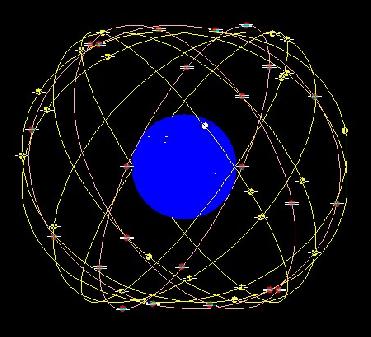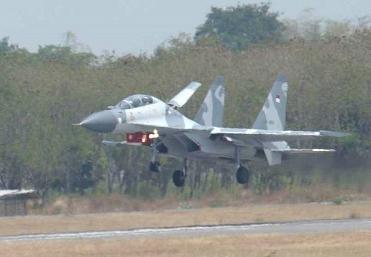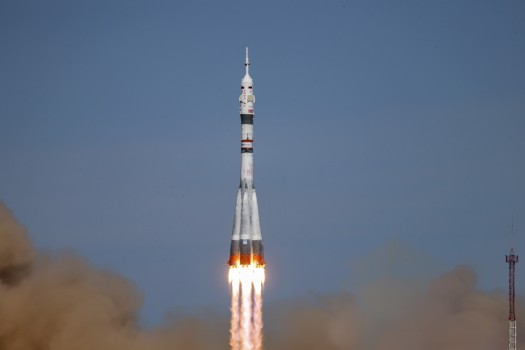
The Glonass constellation on completion. An artist's view provided by Russian space agency
MOSCOW (BNS): Russia launched three Glonass navigation satellites from a Proton-M rocket on Thursday, news agency RIA Novosti reported.
The Proton-M carrier lifted off from the Baikonur space center in Kazakhstan, with three satellites for the Russian version of American Global Positioning System, popularly known as GPS. Like the GPS, Russian Glonass (the Global Navigation Satellite System) will have both the civil and military applications.
"The launch of the Proton-M carrier rocket with Glonass-M satellites on board was made on schedule at 13:43 Moscow time [10:43 GMT], and the separation of the satellites from the spacecraft is due to occur at 17:15 Moscow time [14:43 GMT]," a spokesperson for Russian space agency was quoted as saying by RIA Novosti.
At the moment, Glonass has 19 satellites. The agency reported that 16 of these are operational and two were undergoing maintenance. One will be withdrawn. Under the system, 18 satellites are required for continuous navigation services covering the entire Russian territory, and 24 satellites for worldwide service.
This year has been one of the most successful for Russia, in terms of satellite launches. The space agency bettered its previous year record of 26 launches by one. The Proton-M carrier alone has been involved in 10 launches.
The Russian space agency has set an ambitious target of 39 launches from Baikonur in 2009 and Plesetsk in northwest Russia. For the Glonass mission, it was the second launch this year. The first one had taken place on September 25. Kremlin had earmarked $360 million for Glonass in 2007. The total Glonass budget has reached $2.6 billion after Prime Minister Vladimir Putin made special allocation of funds in September.
A number of countries are still reluctant to use GPS for crucial military applications, as the data can be accessible to the US security establishment. As per the plans, the Glonass network will have at least 30 operational satellites by 2011.
 Previous Article
Previous Article












The Indian Air Force, in its flight trials evaluation report submitted before the Defence Ministry l..
view articleAn insight into the Medium Multi-Role Combat Aircraft competition...
view articleSky enthusiasts can now spot the International Space Station (ISS) commanded by Indian-American astr..
view article